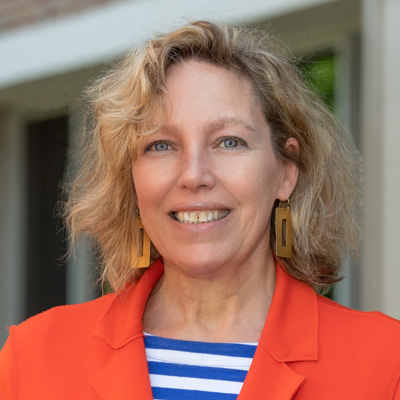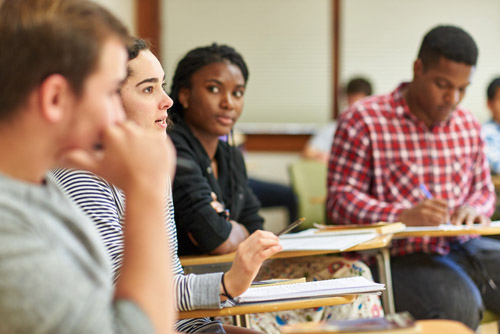Going off to college is a big deal. You’re leaving family and friends to step across the threshold of an entirely new sphere. Each fall, first-year students arrive feeling exhilarated and stimulated, but also unsettled and, at times, even intimidated.
So it’s quite natural that in their first year of college, students look for peers to navigate uncharted waters with, and they look for good advice from trusted guides. Advising circles are a safe place for relationships to develop, for information to be shared, and for questions and concerns to be asked and answered openly, without judgment.
Advising circles are one-credit academic classes with limited coursework that create a framework for discussion and reflection about the very situations in which the students find themselves.
As Dan Chambliss and Christopher Takacs write in their recent book, How College Works, “The most valuable relationships students have with teachers are mentorships. These entail a significant personal and professional connection, lasting more than just one course or semester. They cannot simply be assigned, but neither do they happen just by accident.” Denison’s advising circles are one of the ways our college helps those relationships to thrive.
Led by faculty members, advising circles can be congregated in classrooms, residence hall lounges and even restaurants.
“The circles are intentionally kept small, limited to 10-12 students per group,” says Dean of First Year Students Mark Moller. “Students form really tight-knit communities with each other and with their faculty advisors, who can familiarize them with all the great resources on campus: academic, co-curricular, leadership opportunities, student clubs. This is an organic way to get pertinent information to the students who are looking for it.”
Some circles are built around academic disciplines; others are built around social groups, like athletics, first-generation students and single gender. Many circles are simply open and naturally evolve as students are drawn to work with their faculty advisors.
First-year student Katie Woods from Indianapolis is a believer. “Our advising circle isn’t just about the academics. It’s about the social and adjustment aspects as well. We address the first-year experience holistically and that was extremely helpful for me.”
Fareeda Griffith, assistant professor of Anthropology & Sociology, leads an advising circle for women of color. “Even though they are all women of color, my students come from a wide range of races and backgrounds: political, religious, cultural. Yet they are meeting here and going through many of the same experiences and are growing closer as a result.”
Some circles have even formed their own group chats and contact each other for support, and even for simple things, like having lunch or studying together.
“I think the most important thing about the advising circles is a sense of solidarity. I went to a high school where I was one of the only minorities, so I thought coming to Denison wouldn’t be much of a change, but it was,” said Woods. “There is something to be said about special interest advising circles, where you can hone in on the issues that are influencing your experience. Talking to like-minded peers in similar situations is extremely helpful.”
Jeff Kurtz, associate professor of communication, leads an open group. “I see three spheres of responsibility that we address through the advising circles. 1) We help students learn about Denison, and the resources and community here. 2) We focus on individual growth, helping them develop skills like time management and tips for healthy relationships — things that can help them hit the ground running. 3) We talk about our identity as a liberal arts college, what that really means to our students and how they can take advantage of all the opportunities here.”
Kurtz has invited two men who took part in his first advising circle two years ago to participate as peer advisors to the current first-year students. “Bringing in student peers is a terrific way for the first-year students to build an immediate rapport and support system with peers on campus. The student peers are living in the residence halls and are available for questions that are best answered by people who have a deep understanding of those spaces.”
Surveys of participants indicate the program is a huge success. “Ninety-nine percent of juniors and seniors have told us this experience was really valuable for them,” said Moller.
And the circles give students and their advisors time together to build stronger relationships that will support the students through their time at Denison.
“It took someone else to believe in me before I could believe in myself. Providing mentorship for these women is important to me. No one does it by themselves,” said Griffith.
“I have gained a valuable faculty mentor. It can be hard for first-year students of color to find one, especially if they're not used to reaching out to teachers or professors,” said Woods. “This advising circle helped me realize that my professors really do care about me as a person, and emboldened me to talk to other professors about problems I had both inside and outside the classroom.”

